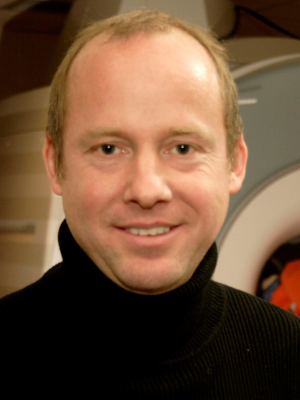
René Weber studies complex cognitive responses to mass communication and mediated narratives with an emphasis on the neural mechanisms of moral conflict, persuasion, media violence, cognitive control, and flow experiences.
René Weber received his Ph.D. (Dr.rer.nat.) in Psychology from the University of Technology in Berlin, Germany, and his M.D. (Dr.rer.medic.) in Psychiatry and Cognitive Neuroscience from the RWTH University in Aachen, Germany. He is a Professor in the Department of Communication and in the Department of Psychological and Brain Sciences at the University of California in Santa Barbara, and director of UCSB’s Media Neuroscience Lab. His lab investigates complex cognitive responses to mass communication and mediated narratives with an emphasis on the neural mechanisms of moral conflict, persuasion, media violence, cognitive control, and flow experiences. Current projects focus on the relationships between media-multitasking and attention disorders (ADHD), compulsive media use, and on the analysis of moral narratives and moral conflict in global news and entertainment. He was the first communication scholar to regularly use fMRI to investigate various media effects, from the impact of violence in video games to the effectiveness of anti-drug PSAs. He has published four books and more than 160 journal articles and book chapters (October, 2022). His research has been supported by grants from national scientific foundations in the United States and Germany, as well as through private philanthropies and industry contracts. He is a Fellow of the International Communication Association.
M.D. Psychiatry and Cognitive Neuroscience (2008) RWTH University Aachen, Germany
Ph.D. Psychology (2000) Berlin University of Technology, Germany
M.A./B.A. Business Administration (1995) Berlin University of Technology, Germany
M.A./B.A. Communication (1993) Berlin University of Arts, Germany